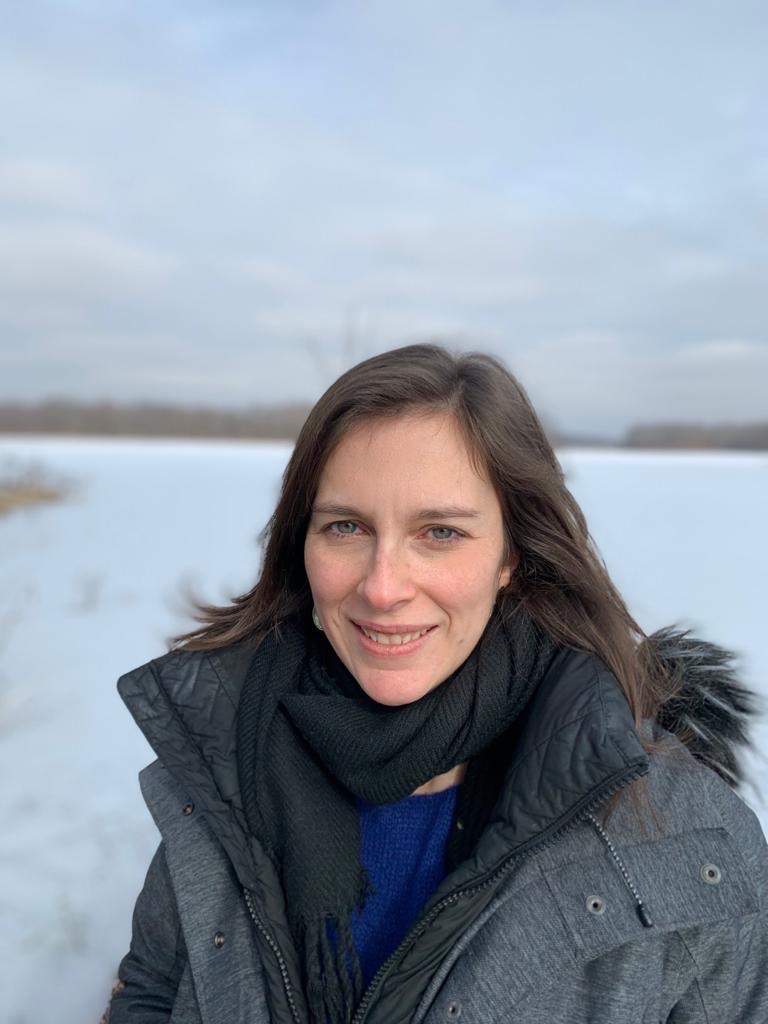ASLE’s Scholar of the Month for January 2022 is Victoria Saramago.

Victoria Saramago is an assistant professor of Hispanic and Luso-Brazilian Studies at the University of Chicago. She is the author of Fictional Environments: Mimesis, Deforestation, and Development in Latin America (Northwestern University Press, 2021).
How did you become interested in studying ecocriticism and/or the environmental humanities?
I started thinking from an ecocritical perspective before I actually knew that ecocriticism and the environmental humanities existed. I was completing my MA degree in Brazil at the time and wanted to explore representations of backlands and forests in mid-twentieth-century Latin American fiction in my PhD. When I came to the US for my doctoral studies and became familiar with ecocritical debates here, I realized I had finally found my intellectual community. Meanwhile, cutting-edge Brazilian scholarship in the environmental humanities and related fields produced in the past decade became an instrumental portion of how I understand my work.
Who is your favorite environmental artist, writer, or filmmaker? Or what is your favorite environmental text? Why?
So many names come to mind! A text I find extremely powerful is The Falling Sky (2013), in which Yanomami shaman and activist Davi Kopenawa Yanomami recounts his life; the history, cosmology, and thought of the Yanomami; and the history of environmental destruction in the Amazon in the past decades. When I discuss this book with my students, I love to focus on the passages in which Kopenawa invites us to question the very categories of nature and environment. In the visual arts, an artist who really speaks to me is Cuban-American Ana Medieta, with her siluetas where earth, body, politics, and gender converge. More recently, I’ve been also very interested in the work of Colombian artist Carolina Caycedo, especially in her multifaceted approach to water and the politics of water management. Now, if I were asked this question when I started thinking about environmental issues as an MA student, I would for sure mention the names of Brazilian writers João Guimarães Rosa and João Cabral de Melo Neto.
What are you currently working on?
I’ve been increasingly interested in the energy humanities, more precisely in electricity-related issues. I am now working on a new book project, provisionally titled “Against the Light: Electricity and Culture in Brazil’s Anthropocene,” that investigates the multiple ways in which Brazilian artistic practices have shaped perceptions of the production and consumption of electrical energy and, inversely, how electricity has enabled, affected, and occasionally destroyed cultural objects. It argues that, far from merely praising electrification as a gateway to modernity, artists across the decades have addressed this process in a highly skeptical and/or ironic fashion, thus providing a powerful critique of the developmentalist paradigm that persisted across generations in twentieth-century Brazilian politics. Right now I am working on a chapter that reads the prevalence of electroshock as a torture method in the military dictatorship that ruled the country from the 1960s to the 1980s from an environmental angle. I am also working as a co-editor in three projects. With Luca Bacchini, I am co-editing one of the first volumes in English on the environmental humanities in Brazil, titled Literature Beyond the Human: Post-Anthropocentric Brazil (forthcoming). I am also co-editing a special issue of the Journal of Lusophone Studies with Chloe Hill on post-apocalyptic imaginaries in Portuguese, which should come out later in 2022. Finally, I am co-editing the Handbook of Latin American Environmental Aesthetics, with Jens Andermann and Gabriel Giorgi, which encompasses a wide range of theoretical and critical itineraries.
What is something you are reading right now (environmental humanities-related or otherwise) that inspires you, either personally or professionally? Comment briefly on why or how it inspires you.
Right now I am reading the novel Temporada de huracanes by Mexican writer Fernanda Melchor, originally published in 2017 and then translated into English as Hurricane Season. I am loving the way in which it brings together a multi-plot structure in the space of the small town so present in classics of Mexican fiction with the expansion of the oil industry in the state of Veracruz. These past few months I’ve been immersed in narrations of and documents about torture and dictatorship in Brazil, which are not immediately legible from an environmental standpoint. Besides the films and books I discuss in my chapter, I’d recommend, for example, the memoir Retrato calado (1988) by Luiz Roberto Salinas Fortes, the film Quase dois irmãos (2004) by Lúcia Murat, and the documentary O dia que durou 21 anos (2013) by Camilo Tavares.
Is there a scholar in the field who inspires you? Why?
It would be impossible for me to list the scholars in the field who inspire me and who have marked my work. Going back to the first question about how I started studying ecocriticism, a foundational name for me in those early days and later is Ursula Heise. I actually became interested in her work when I read Chronoschisms (1997) before coming to the US (although Imagining Extinction (2016) is my favorite book by her now), and her focus on narrative theory and environmental studies strongly resonated with what I wanted to do in my own work. Moreover, I very much admire her ability to brilliantly put into dialogue wide and heterogeneous sets of materials so as to show the imbrications of science, narration, and culture.
